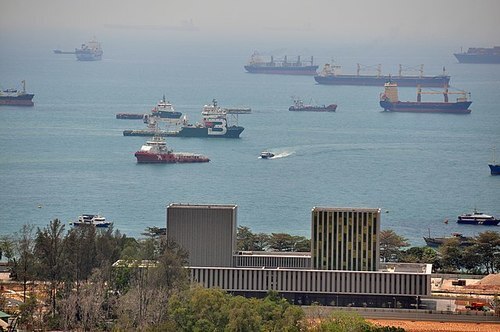ÐÎÑÑÈÉÑÊÈÉ ÏÐÎÔÅÑÑÈÎÍÀËÜÍÛÉ ÑÎÞÇ ÌÎÐßÊÎÂ
SEAFARERS' UNION OF RUSSIA
A NON-UNIONIZED SEAFARER
IS AN UNPROTECTED SEAFARER
Back
Responsibility of shipowner to seamen has been retained

Changes to the Merchant Shipping Code (MSC) and the Inland Water Transport Code (IWTC) introduce a new type of activity - technical management of a vessel. This refers to the activities of operating the vessel – arrangement of work to maintain it in satisfactory condition, and applying to the relevant authorities to obtain ship documents. It is important to note that the introduced regulation does not change the responsibility of the shipowner to the crew members of sea vessels in labor relations, although there were some risks for maritime fleet workers in the original version of the bill.
The Maritime Transport Workers' Federation, on behalf of the Seafarers' Union of Russia, has done serious work to preserve the guarantees of the shipowner's responsibility to the maritime fleet workers and prevent the emergence of tripartite labor relations in the shipping sector. Thus, the corresponding changes in MSC and IWTC are provided for by Federal Law No. 28-FZ dated February 26, 2024, “On Amendments to Certain Legislative Acts of the Russian Federation.” The basis for the changes in legislation was the norms of the International Convention for the Safety of Life at Sea (SOLAS) and the International Management Code for the Safe Operation of Ships and for Pollution Prevention (ISM Code).
In particular, Art. 8.1, regulating technical management issues, has been introduced into MSC. It gives the shipowner the right to entrust the technical management of the ship to a technical manager - a legal entity or individual entrepreneur, who, in turn, under the contract, will be able to fulfill the duties of the shipowner within the framework of Russian legislation and international treaties.
By the way, the requirements for a technical manager will be additionally approved by the Government of the Russian Federation. In addition, the adopted law amended Article 60 of MSC, which currently establishes the obligations of the shipowner in relation to the ship’s crew. It provides for delegation to the technical manager the authority to exercise, on behalf of the shipowner, the rights and obligations of the employer to crew members, including concluding employment contracts, paying wages, and ensuring safe working conditions. -The most important thing for seafarers is that, based on the wording used in the changes “on behalf of the shipowner,” it is he - the shipowner - who remains their employer; thus, the introduced regulation does not change his responsibility to the crew members of sea vessels in labor relations, - a legal expert of the Seafarers' Union of Russia Svetlana Kolganova explains. — The shipowner is still liable for maritime claims with the vessel, which, for example, can serve as collateral for the fulfillment of obligations towards the crew - compensation of wages, repatriation costs and social insurance contributions.
Moreover, the adopted law provides for the joint liability of the technical manager and the shipowner to third parties. Consequently, seafarers can make claims against any of them if any labor dispute arises on board a vessel transferred to technical management.
Up
